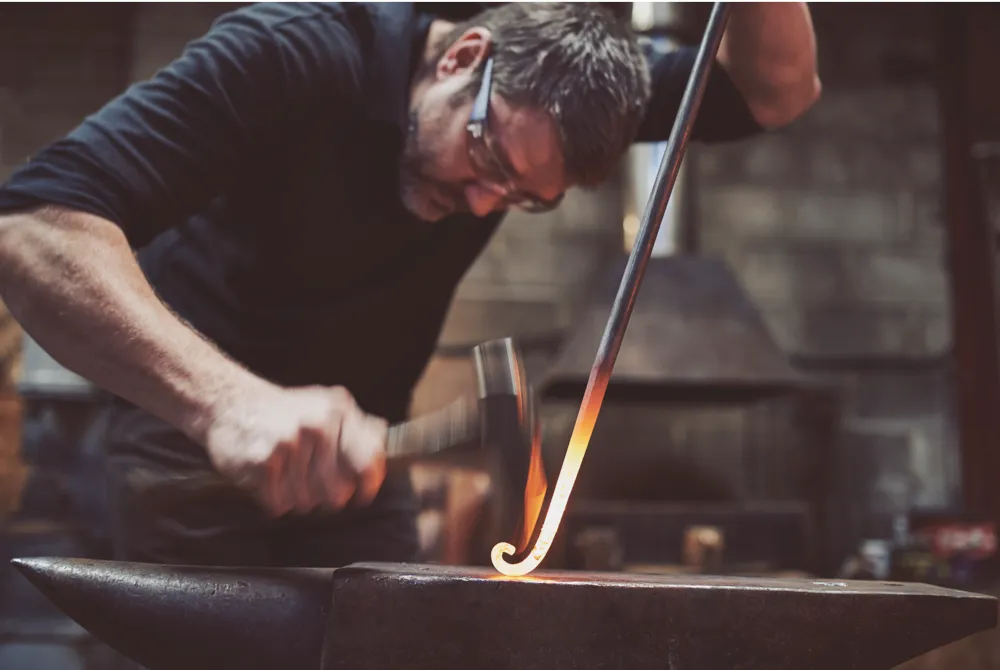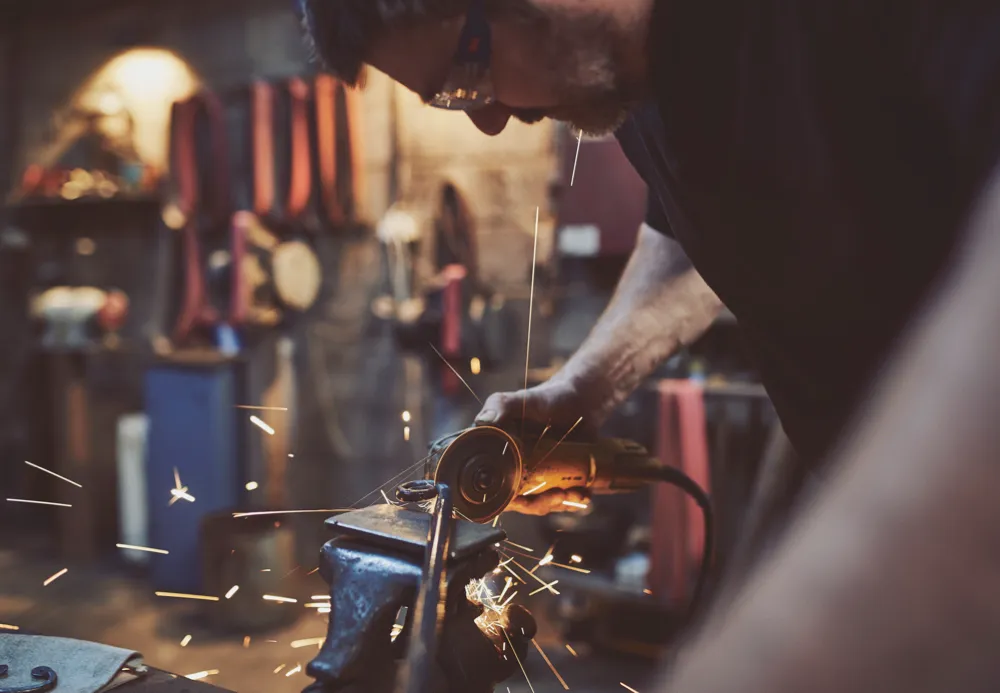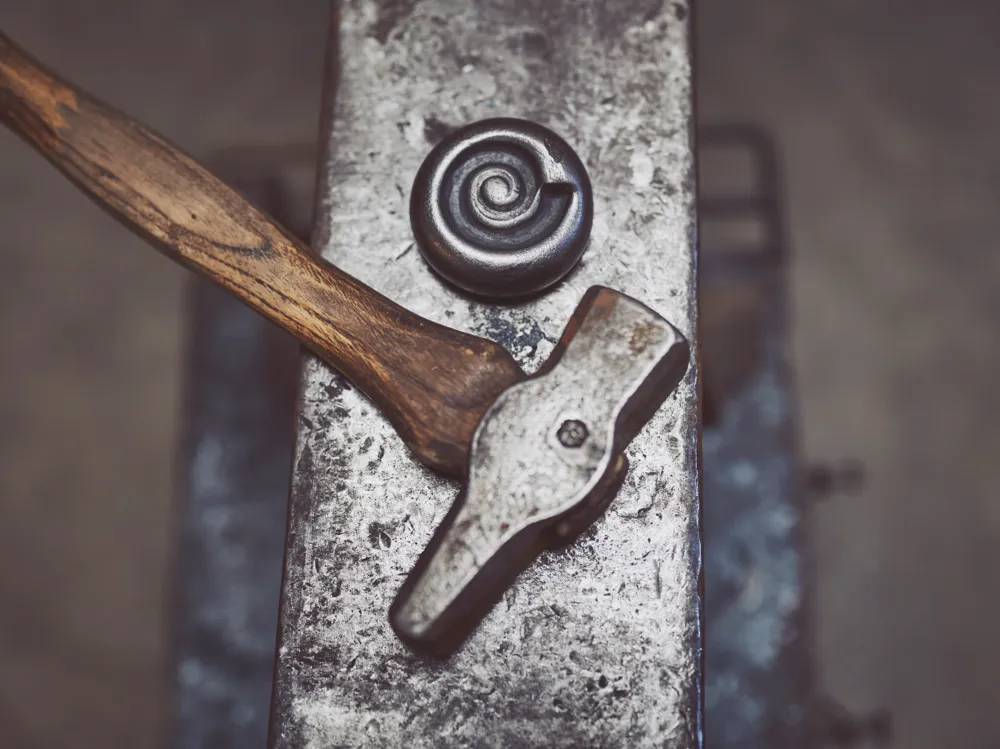From his smithyin the heart of Somerset cider country, surrounded by soaring apple trees and rolling countryside, Alex Pole can be found hard at work in the heat of his furnace. Here he repeatedly strikes pieces of hot steel on his anvil to forge them into meat forks, knives and dishes – objects that are both beautifully formed and built to last. And, when he’s not handcrafting bespoke items, Alex also hosts workshops and courses for budding young blacksmiths and hobbyists.
Tell us about your background
I was a boarder at Marlborough College until I was 18, then briefly studied architecture in London before moving to Plymouth College of Art to study jewellery making followed by architectural metalwork. After college I worked and travelled, ending up in Western Australia for eight years where I established a jewellery business. I returned to the UK in 2006 and went back to blacksmithing. I set up Alex Pole Ironwork in 2008.

When did you first discover a love of metalwork?
When I was about four years old I would sit with my mum at home and watch her make jewellery. For as long as I can remember I have been drawn to metals of all types: from casting lead figures to fine jewellery.
Tell us about the range of items you make
Throughout my blacksmithing career, I have made a huge range of pieces, from gates and railings, to sculpture and lighting. Now I specialise in kitchenware and cooking utensils. I have several different sides to the business, and make axes and knives too.

Who and what inspires you the most?
My inspiration comes from the material itself and what I can do with it. As everything I make has a specific purpose or function, I am quite constrained but, in a way, this makes the design process much easier. Instagram has been a great tool for inspiration and communicating with the global makers community.
What is your process?
All of my products are traditionally hand forged from a variety of different steels (mild steel or high carbon steel). I use a gas forge nowadays as it is better for small production work. The steel is heated to 1,000˚C, then hammered or pressed to achieve the right shape.

Describe your workshop
I have a fantastic workshop in south Somerset on the edge of a 75-acre cider orchard. It is split into two spaces: one is purpose-built for running our blacksmithing courses and the other is for production.
What is the proudest moment of your career so far?
Learning how to make axes has been quite a difficult journey, so getting to the point where I am happy with the results makes me feel very proud. A huge high point was doing a knife-making, cooking and cocktail demo with knife maker Ed Hunt and chef Valentine Warner at Cerys Matthews’ The Good Life Experience in Flintshire, Wales last year. I love collaborating with other makers and chefs and this one was a huge smash.

A new range of spun steel frying pans and skillets with forged steel handles. One range for the kitchen and another for the campfire.
Any future plans?
I try not to plan too far ahead but for 2019/2020 I want to continue developing new designs for the Forge Kitchenware brand, as well as build our reputation as a place to come and learn about blacksmithing. The courses I run with my team of smiths have become an important part of the business and we are growing that aspect each year. My biggest ambition is to have my book published – I am an avid reader and collector of books and it would be amazing to see my own words
in print.
Alex's stainless steel serving dishes naturally blacken in the forging process and are then buffed and oiled
See more of Alex’s creations at alexpoleironwork.com.
Images: Jesse Wild
Interview: Sophie Hannam